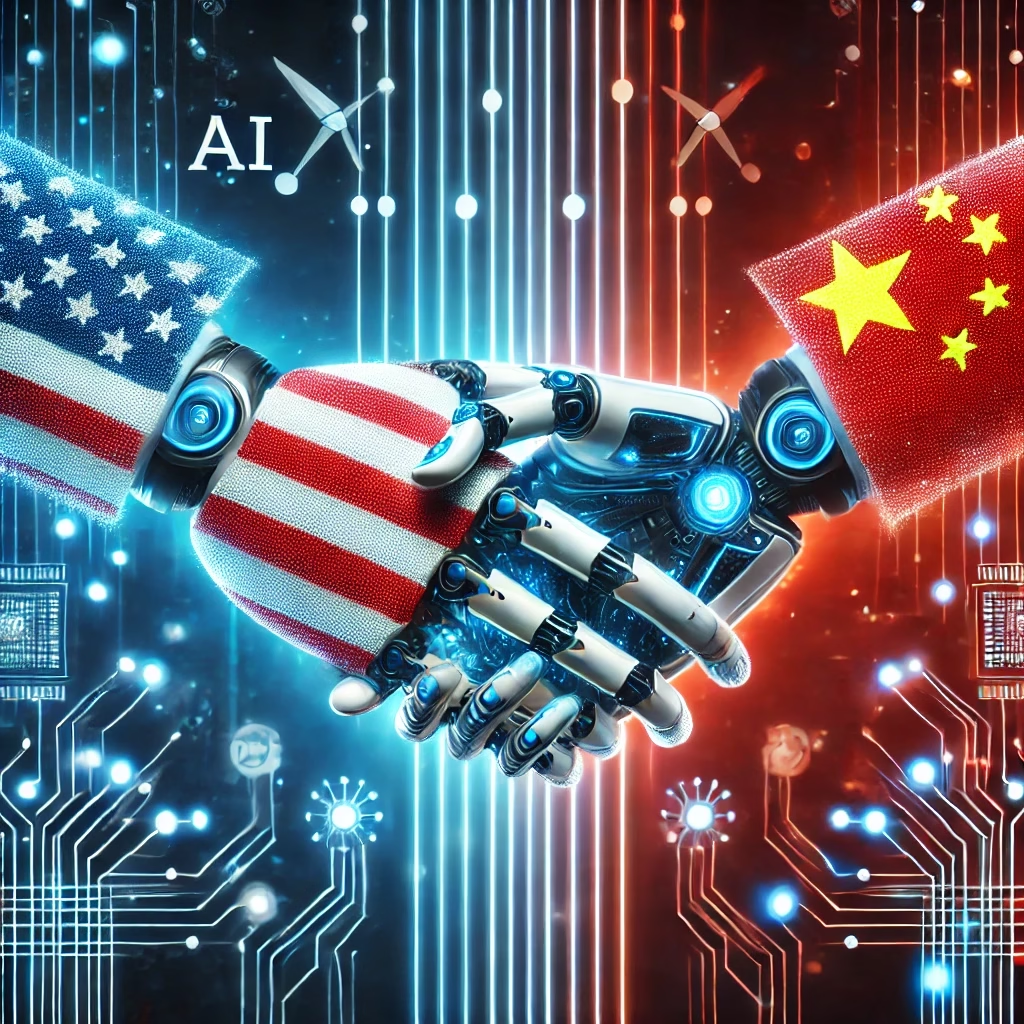🔹 Introduction: The Growing Imperative for US-China AI Collaboration
Artificial intelligence (AI) is transforming industries, economies, and societies worldwide. With the US and China at the forefront of AI innovation, their cooperation is becoming increasingly vital.
According to the US-China Relations Committee Head, fostering collaboration between the two superpowers is essential to prevent potential conflicts, promote ethical standards, and accelerate AI advancements.
In this article, we’ll explore:
- Why US-China AI cooperation is crucial
- Potential areas of collaboration
- Risks of AI rivalry
- Expert insights on fostering cooperation

💡 Why US-China Cooperation on AI Matters
🔹 1. Ensuring Global Stability and Security
AI has significant implications for national security and military applications. Unregulated AI competition could lead to an arms race, creating instability and increasing the risk of conflict.
- Ethical AI regulations: Joint efforts could help establish international AI norms and prevent unethical uses of technology, such as autonomous weapon systems.
- Cybersecurity and privacy: Collaboration could strengthen cyber defense mechanisms and prevent hacking or data breaches linked to AI-powered systems.
🔹 2. Accelerating Technological Innovation
Both nations are leading in AI research, but cooperation could drive faster innovation by combining expertise and resources.
- US strengths: Expertise in AI software, machine learning, and chip design.
- China’s strengths: Data abundance, large-scale implementation, and AI infrastructure.
- Joint benefits: By sharing AI research, the two countries could boost technological advancements in healthcare, transportation, and finance.
🔹 3. Addressing Ethical and Bias Concerns
AI models often face bias issues, and a lack of collaboration could lead to conflicting AI ethics standards.
- Unified regulations: Cooperation could lead to standardized AI governance that reduces bias and promotes fairness.
- Trust and transparency: Joint policies could ensure transparent AI practices, preventing discrimination in algorithmic decision-making.
🤝 Key Areas for US-China AI Collaboration
🔹 1. AI Research and Development (R&D)
Co-investing in AI research could advance technologies in fields like healthcare, autonomous vehicles, and natural language processing.
- Data-sharing initiatives: Both nations could benefit from cross-border data exchange to enhance AI model accuracy.
- Joint AI labs: Establishing joint research centers could foster innovation while ensuring transparency.
🔹 2. Ethical AI Governance
Developing global AI standards would prevent biased or unethical practices.
- AI ethics framework: Collaborating on privacy protection, bias mitigation, and algorithmic transparency.
- International AI oversight body: A joint initiative could lead to an AI regulatory framework that governs the responsible development and deployment of AI.
🔹 3. Climate and Healthcare AI Solutions
AI can play a key role in tackling climate change and improving healthcare outcomes.
- Climate modeling: Joint AI-powered projects could enhance climate predictions and disaster response.
- Medical research: Collaboration on AI-based drug discovery and diagnostics could revolutionize healthcare globally.
⚠️ The Risks of US-China AI Rivalry
🔹 1. Technology Decoupling
If the US and China continue down a path of technological decoupling, both economies could suffer.
- Innovation slowdown: Lack of cooperation could hinder global AI advancements.
- Duplicative efforts: Each nation investing in separate AI solutions could lead to redundant developments and inefficiencies.
🔹 2. Geopolitical Tensions
AI competition could further strain geopolitical relations, increasing mistrust.
- AI arms race: Competing in AI for military purposes could escalate international tensions.
- Data privacy disputes: Conflicting data privacy standards may lead to international data conflicts.
🔹 3. Economic Consequences
Economic sanctions or restrictions on AI exports could hurt innovation.
- Disrupted AI supply chains: Tech bans could slow AI growth in both countries.
- Reduced global AI leadership: Fragmented AI ecosystems could reduce the influence of both nations.
🌐 Expert Insights on US-China AI Cooperation
🔹 US-China Relations Committee Head’s Perspective
The US-China Relations Committee Head emphasized that cooperation is not only beneficial but necessary:
“Both nations must recognize that AI collaboration is a win-win. Shared innovation will lead to better technologies and improved global stability.”
🔹 Industry Experts’ Opinions
According to Kai-Fu Lee, an AI expert and venture capitalist:
“The US and China have complementary strengths in AI. Collaboration, not competition, will lead to greater innovation and global leadership.”
🔹 Think Tanks and Policy Recommendations
The Brookings Institution and Carnegie Endowment for International Peace advocate for:
- Joint AI research initiatives
- Bilateral AI governance frameworks
- AI talent exchange programs
✅ Conclusion: Cooperation Is the Path Forward
The US and China are at a crossroads when it comes to AI. While rivalry may seem inevitable, cooperation offers greater benefits, including global stability, technological progress, and ethical AI governance.
To avoid an AI arms race and promote responsible innovation, both nations must prioritize collaboration over competition.
✅ Let me know if you want any revisions, additional sections, or image generation for this article! 🚀



